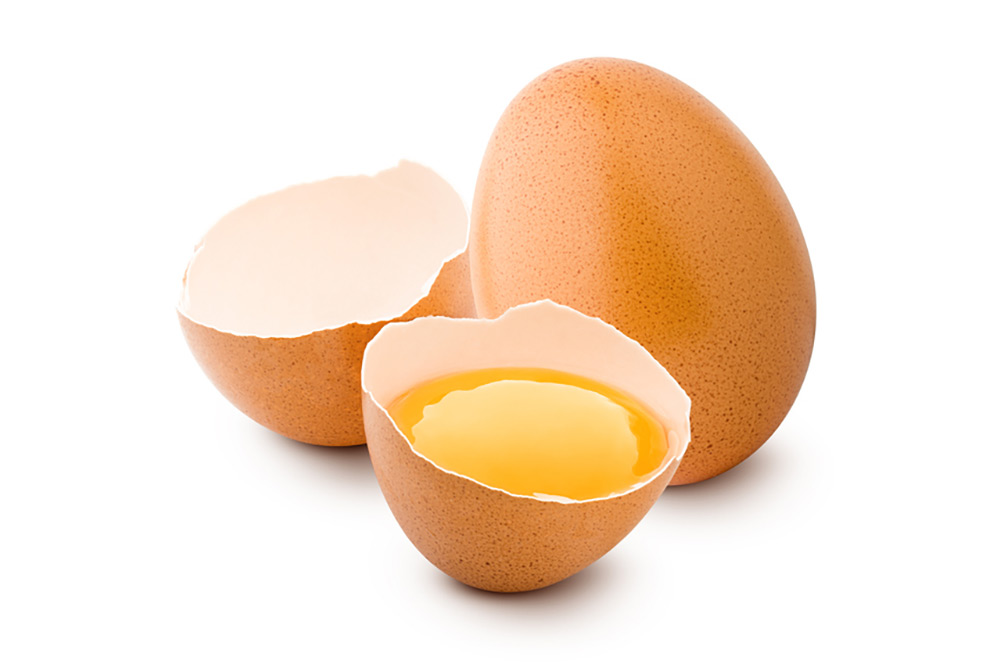
iStock
By Mary Carpenter
IS the egg a near-perfect food, with lots of protein, low carbs and low risk of digestive issues? Or is it too high on the dangerous cholesterol list? And about cholesterol: What’s the latest on “good” HDL and “bad” LDL (high- and low-density lipoproteins) for heart and brain health; and for risk assessment—what about blood cholesterol vs. coronary artery calcium (CAC) testing? Finally, do statins enable worry-free cholesterol consumption—including eggs?
One large egg contains about six grams of protein (depending on body weight, most adults should eat about 150 grams/day), very few carbohydrates and “147 mg of choline, which supports memory and mood,” according to VeryWellFit. At about 80 calories, the egg contains five grams of fat, which include “good” polyunsaturated and monounsaturated fats that could help lower LDL cholesterol—along with “bad” saturated fats that The American Heart Association advises to limit to about 13 grams/day.
But one assessment of a two-egg breakfast, compared with an egg-free meal, found “no significant effects on blood cholesterol;” and another study on diabetics showed that eating 6-12 eggs/week “didn’t negatively affect total blood cholesterol levels [and instead] increased HDL,” according to Healthline. Eggs become more nutritious when they contain higher levels of “omega-3 fats” —when specified in the label, these hens have been fed flax seeds; while for eggs labeled “pasture-raised” and “free range,” the hens have eaten “greens, grubs and other natural foods.” (“Outdoor access” can mean nothing more than a little window for hens that are crowded indoors.)
Lowering blood levels of LDL cholesterol, however, can make a big difference in health—at least when measured in patients taking statin medications. In a 2019 meta-analysis that looked at more than 130,000 patients, in the group taking statins “for every 18 mg/dL drop in LDL, there was a 24% reduced risk of major coronary events, such as a heart attack, and a 16% lower risk of stroke,” according to HealthCentral.
The good reputation of HDL, meanwhile, became more complicated—in its links to dementia, as well as heart disease and cancer—with research that followed more than 184,000 adults over 17 years: an elevated risk for dementia occurred at HDL levels that were both below 41 mg/dl but also above 65 mg/dl. Explains study author, Boston University epidemiologist Maria Glymour, “The elevation in dementia risk with both high and low levels of HDL cholesterol was unexpected, but these increases are small, and their clinical significance is uncertain.”
“I’d say the HDL hypothesis is on the ropes right now,” James de Lemos, cardiologist at the University of Texas Southwestern Medical Center, told the New York Times. And in the 10 years since that study, some of the 200 or so subspecies of HDL proteins have shown no association or even association with increased risk of heart disease, while other HDL subspecies continue to prove “good” for the heart.
Testing for heart disease risk also became more complicated with the discovery that coronary artery calcium (CAC) plays an important role in heart disease risk. “Distribution of risk factors in [asymptomatic] individuals is heterogeneous and varies by the presence or absence of coronary artery calcium,” according to researchers at Emory and Johns Hopkins universities—challenging the earlier notion that high LDL levels are, independently, an important risk factor for heart disease and cardiac events.
A high LDL blood cholesterol score suggests the need for intervention—but alongside a zero CAC score, indicates low risk of coronary heart disease, according to MedicalNewsToday. CAC testing that shows high calcium levels in the arteries indicates risk of plaque buildup that may eventually cause a blockage—with risks higher when “estimated arterial age” scores are farthest from a person’s actual age: a score of 40 at age 65 is okay, as is 100 for age 73, while higher than 100 at any age suggests the need for intervention. Taking statins can alleviate some worries about consuming high-cholesterol foods, because these drugs “reduce the synthesis of LDL [cholesterol and help keep it] out of the arteries,” according to HealthCentral. But physicians warn that patients taking statins should still exercise and follow healthy diets, notably the Mediterranean regimen—because inflammation and other factors not addressed by statins continue to play an important role in risk of heart disease and in overall health.
For me, success in lowering LDL cholesterol levels when taking statins has been encouraging to my doctor. But I have been hesitant to take cholesterol numbers seriously ever since, right after a bout with Lyme disease, my LDL levels suddenly shot up more than 150 mg/dl—following decades of impressively low LDL and high HDL cholesterol scores. Eggs, meanwhile, are among my favorite foods—boiled ahead of time for quick and easy breakfasts, or for lunch with spoonfuls of mayonnaise, also rich in cholesterol, as egg salad.
—Mary Carpenter regularly reports on topical subjects in health and medicine.

Intriguing article, thanks, Mary. So if I understand the Emory/Johns Hopkins research, even if you have high LDL as long as you have low CAC, you are not at risk for coronary heart disease. Is testing for CAC routine and an annual exam? And what are the factors that cause high levels of CAC?
To reduce CAC, is it just Mediterranean diet and exercise or is there medication for it?
Very interesting. Thank you. I wonder how prevalent coronary artery calcium is and how it is identified.